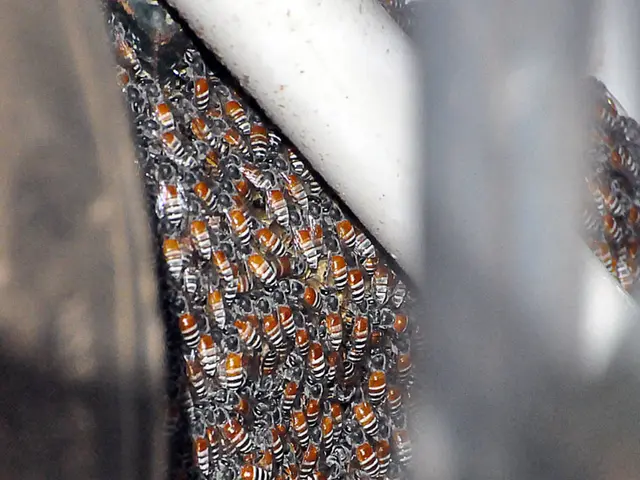Auction Pause: Sotheby's Delays Buddha Relics Sale in Response to India's Legal Objection
Sotheby's postpones controversial auction of ancient Buddhist jewels in Hong Kong, following legal notice and diplomatic pressure from the Indian government. The high-profile event, scheduled for May 7, 2025, has been indefinitely delayed due to questions surrounding the auction's legality and ethical implications.
At the heart of the controversy is the Piprahwa gems, a collection of precious stones unearthed in 1898 from a stupa in northern India. The auction house's decision to sell the gems ignited a wave of protests from India's Ministry of Culture, who claimed the auction violated Indian laws, international norms, and United Nations conventions.
The Ministry of Culture emphasized the deeply rooted cultural and religious significance of the relics, asserting that they are part of India's inalienable heritage, not only as a nation but as a global Buddhist community. The government vowed to take legal action if the auction proceeded and threatened to launch advocacy campaigns to oppose Sotheby's role in perpetuating colonial injustice.
In response to the mounting pressure, Sotheby's announced the postponement of the auction, stating that the decision was made following discussions with the consignors and in deference to the concerns raised by the Indian government. The auction house expressed its intention to facilitate further dialogue between the parties to reach a resolution that honors the cultural and historical importance of the Piprahwa gems.
The decision to postpone the auction sparked renewed debates over the ownership and ethical implications of selling cultural and religious artifacts, particularly those acquired during colonial times. Legal experts have suggested that the sale could potentially breach multiple Indian heritage laws, with disputes persisting over ownership rights.
As discussions continue, the Indian government continues to advocate for the repatriation of the Piprahwa gems, emphasizing their critical importance to India's cultural and religious heritage. The postponement has highlighted the need for ongoing dialogue and resolution in cases where the ownership and ethical implications of artifacts are in dispute.
- The Indian government's advocacy for the repatriation of the Piprahwa gems reflects their emphasis on preserving not only their national cultural heritage but also the global Buddhist community's religiousartifacts.
- The legal notice and diplomatic pressure from the Indian government, addressing issues of war-and-conflicts and policy-and-legislation, resulted in Sotheby's postponing the auction of the disputed Piprahwa gems.
- In the wake of the postponement, the general news and crime-and-justice sectors may scrutinize the cultural and ethical repercussions of selling artifacts, particularly with respect to their origins during colonial times, raising questions about ownership and ethical implications.








